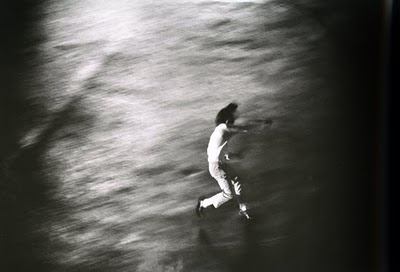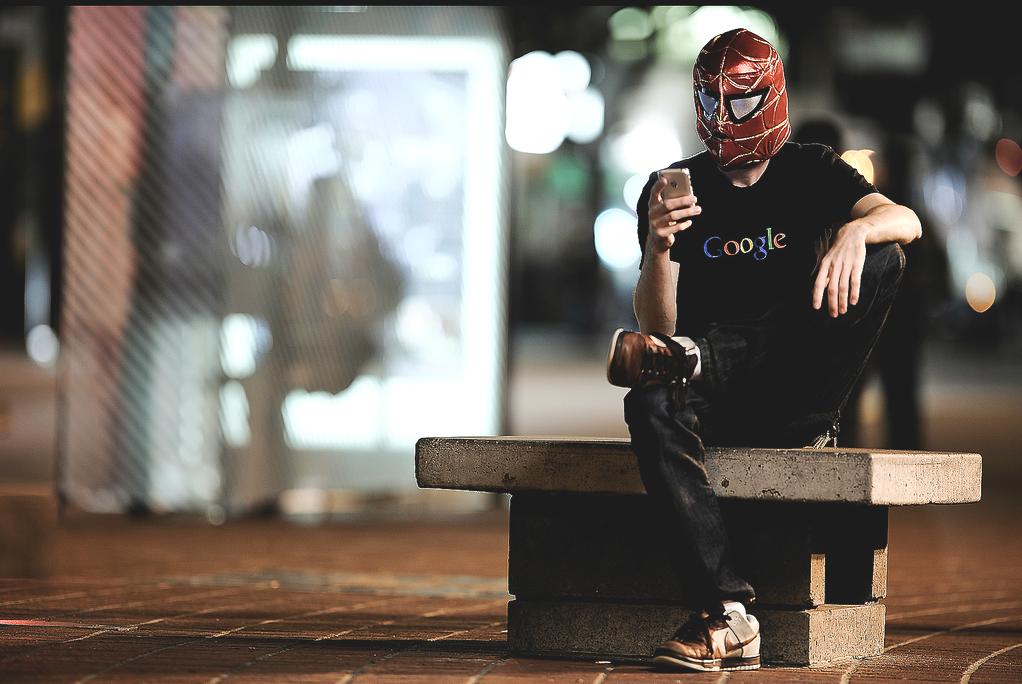The other night I had a long call with a close friend who is working abroad – one of those long-distance Skype check-ins where both have so much to say yet both struggle to have a fluent conversation. I don't know, maybe it's the 'laptop' effect – the feeling that you're either conference calling or being interviewed instead of having a chat. Anyway, one point of anxiety was his imminent date with a friend of a work colleague's partner. This prompted a length digression into single life and the games we play.
Read MoreBoy meets girl – how hard can it be?
#TheMadOnes – a review of On the Road
I first met Dean and Sal not long before I left university. At the time I had been buried in books and academia for more than 10 years, diligently working towards a career in the law. However expectations, those of my parents and myself, were beginning to weigh me down. The more I tried to confirm to others' thoughts of success and fulfillment, the more I became frustrated with the world and my place in it. I craved liberation. Jack Kerouac's existential tale of dreams, dames, kicks and characters set me free.
Read MoreEverything was moving
The Barbican has always been one of my favourite 'feeding' spots in London and this winter is no different as the marvellous Everything was moving exhibition brings some of the most powerful photojournalism ever captured to the capital.
Covering a radical and tumultuous period of change during the 1960s and 1970s, and dedicating one room to each of the 12 photographers selected, the exhibition is a deliciously immersive experience, allowing visitors to survey each "personal landscape" in a given country. In fact, you could argue that reportage and the medium of photography really came of age during this period. The Cold War, Vietnam, civil rights in the US, apartheid in South Africa… The arts were at their most provocative in response, forcing everyone to confront reality.
What's interesting about the work of each exhibitor is the interplay between the external and the internal. Subjectivity and objectivity. From Bruce Davidson's stark and shocking account of Sixties' prejudice and persecution in the Deep South, to Raghubir Singh's moments of full-colour human warmth that illuminate India, or the dissident 'encryptions' of conceptualist Ukrainian Boris Mikhailov, their process is both reflection and self-reflection.
It's something I've always admired and wondered at, particularly when it comes to reportage: the power of photography to take us to a place, confront us, question our beliefs and then leave us to make sense of it all in the present.
I spent two hours jostling for position on the two floors – avoid weekends if you can – but you could easily spend another hour trying to decipher the work of Sigmar Polke – an allegory about Afghanistan and how it became the Soviet Union's 'Vietnam' – or pour over the composite Mao rally shots of Li Zhensheng, the only complete visual record known of the Great Proletarian Cultural Revolution. Polke's work seemed out of place but perhaps there is merit in including a more conceptual and challenging form of photography in the mix. Aside from that, the wonderful Malick Sidibe was not given equal coverage, which was a shame.
I think visitors would have benefitted from a little more context and insight from each photographer, as was provided through a short film in the case of Ernest Cole, a fearless documentarian of the sheer measure of repression in apartheid-era Africa. Perhaps audio and video recordings were hard to come by, although there are a few Barbican talks online featuring David Goldblatt among others.
Ultimately this exhibition is all about the photography and Everything is moving is a brilliant celebration of both the art and the artist. History in the making, poignantly captured by crucial commentators of our time. As you enter you will read these words from Bruce Davidson: "I'm not trying to tell a story as such, but to work around a subject intuitively, exploring different vantage points, looking for its emotional truth. If I am looking for a story at all, it's in my relationship to a subject."
I think we can all relate; to the second part at least.
Everything is moving is on at the Barbican until 13 January 2013.
Google's fight for freedom
Is Google a publisher? This is the question that has puzzled me for the past week after reading a fascinating piece in the Independent last Saturday, which documented a series of legal battles the Silicon Valley giant is embroiled in. The central issue is whether the humble search engine – so humble that it is now worth a reported $247.2 billion (£153.8 billion) and handles more than 100 billion search queries each month, commanding more than 90 per cent of the search market – can absolve itself of any responsibility for the content that it aggregates.
My view is that Google is more than just a "host" as one person claims in the comments at the foot of the article. The company is using an algorythm – their criteria – to determine what is relevant to a given user. They may not be content creators for the purposes of producing a list of search engine results, but they are curators nonetheless. And just like any other company that presents a selection of media to the public they must be held to account for the choices that they make. There must be due diligence.
I can't help but sympathise with Mr Zagallo in the following extract:
"Brazil has been a particularly turbulent market for Google, with more demands for content to be removed from the website than in any other country. This week Jose Guilherme Zagalio, the head of a commission set up by the Brazilian Bar Association to investigate information technology, said: 'Our laws trying to govern the internet are outdated. It's not clear who is responsible for content, and that creates uncertainty.'"
To claim that Google is an intermediary and nothing more while it wields extraordinary power and influence over the business world is delusional. Google is a monopoly, plain and simple. Just because a peer-2-peer site or Torrent client is merely hosting content does not mean that the rights of those who hold copyright in the intellectual property being downloaded are not being infringed.
Let's say that I run a shop that supplies cheeses – I am not the producer – and they are the same variety of cheeses that are widely available around the city, that does not suddenly free me of responsibility to ensure the produce conforms to certain standards and laws. Information can be just as harmful to us as bad produce, remember. Granted, Google exists to 'serve up' more than one type of product, service or content, but my point still stands. WIth that level of resource and expertise to call upon they can and should be more accountable.
Those supporters who point to activits such as WikiLeaks founder Julian Assange and assert that freedom of information is absolute are really not considering the deeper issue. This is about more than investigative journalism and exposing corruption in government. There must be a check, independent or otherwise, on the mass dissemination of information.
The point about "a right to be forgotten" is an intriguing one. As everything moves on to the internet, in terms of tagging and geolocation, anonymity will be an almost absurd concept. If there is a right to privacy in Europe then is it unreasonable to assume that a person should be allowed to not be traceable online, a right that should certainly be enforced against the master gatekeeper of the internet? Even through an opt-out scheme, so as to make it feasible on policy grounds.
On a personal note, as both a fact-checking journalist and a deeply inquisitive guy, Google has been invaluable in providing answers to myriad questions I might have. A veritable window to the world. Connecting us, bringing us together, even. But with great power… Well, you know the rest.
I'd love to hear your thoughts…
Let's flick your switch
It's often said that life is what happens when you're busy making plans. So I have finally stopped talking about it and decided to join the millions of culture vultures out there desperate to be heard. Just what the world needs, I hear you say: another earnest arts blog. No please don't close this tab. Think it through. We're worth it and I'll explain why.
Read More













